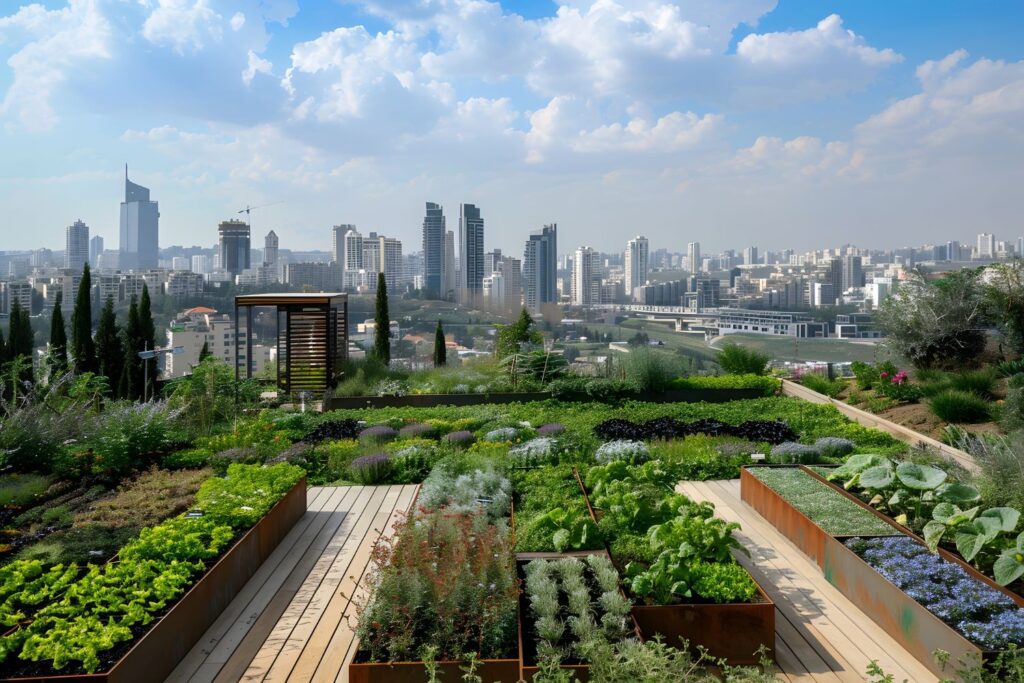Abuja is known for its affluence and prestige, as Nigeria’s current capital it attracts a lot of visitors as well as immigrants, finding accomodation in the city isnt an easy feat due to the high amount placed on houses located at the city center.
Abuja is known for its modern infrastructure, bustling economy, and cosmopolitan atmosphere. While the city is often associated with affluence, it’s possible to find affordable living options without sacrificing comfort and convenience.
In this exclusive article we’ll highlight the best places to live in abuja on a budget as well as the area councils where they are located. We’ll delve into the pros and cons of each location, considering factors like proximity to the city center, affordability, amenities, and safety. In our previous article we hightlighted Abuja vs FCT, Detailing the difference between both areas. Lets get right into it.
@the.real.estate.g8 Best places to live in Abuja on a budget #abuja #abujatiktokers #foryoupage #fyp #realestate ♬ Rodo – Adekunle Gold
Table of Contents
Best Places to live in Abuja on a budget – their Area Councils, Pros & Cons
The following places have been picked based on their close proximity to the city center, Affordable housing, good electricity , Good road network, Less security risk as well as how easy it is to get a comfortable house to suit your budget, in no particular order.
1. Apo Resettlement (AMAC)
Area Council: Abuja Municipal Area Council (AMAC)
Apo Resettlement is a vibrant community known for its accessibility and affordable housing. It’s a popular choice for those looking to stay close to the central business district without breaking the bank. Famous for its automobile industry, Apo houses a lot of spare parts dealers and businees in its environs, its also called ” Apo Mechanic Village“.
Pros:
- Proximity to the City Center: Just a short drive from the central business district, making it convenient for commuting.
- Affordable Housing: A range of housing options, from apartments to detached houses, catering to various budgets.
- Good Infrastructure: Well-paved roads and access to essential amenities like schools, hospitals, and markets.
Cons:
- Traffic Congestion: The area’s popularity can lead to traffic, especially during rush hours.
- Overcrowding: As a resettlement area, it can sometimes feel crowded.
2. Karu (Part of Nassarawa State)
Area Council: Technically outside the Federal Capital Territory (FCT), Karu is in Nasarawa State but closely associated with Abuja due to its proximity. Karu is located just after Asokoro on your way to Nyanya and mararaba.
Karu offers an excellent alternative for budget-conscious residents willing to live slightly outside the FCT’s borders. It’s an area undergoing rapid development.
Pros:
- Lower Cost of Living: Generally more affordable than most areas within the FCT.
- Growing Infrastructure: Improved road networks and expanding commercial activities.
- Tranquil Environment: Less urbanized, offering a more peaceful living experience.
Cons:
- Distance from the City Center: A longer commute to the central parts of Abuja.
- Limited Amenities: Fewer high-end amenities compared to areas within the FCT.
3. Galadimawa (AMAC)
Area Council: Abuja Municipal Area Council
Galadimawa is an emerging area in Abuja, attracting young professionals and families looking for affordable housing close to the city’s heart. Galadimawa is located at the lokogoma area , beside it are estates like Suncity Estate.
Pros:
- Affordable Housing: Competitive rental prices for apartments and shared accommodations.
- Accessibility: Close to major roads and the Abuja Airport, making it a convenient location.
- Development: Rapid infrastructure growth, including shopping centers and educational institutions.
Cons:
- Inconsistent Utilities: Issues with water supply and electricity in some parts.
- Ongoing Construction: The area is still developing, which can lead to noise and dust from construction activities.
4. Lugbe (AMAC)
Area Council: Abuja Municipal Area Council
Lugbe is a popular residential area for budget-conscious individuals, offering a mix of residential and commercial spaces.
Pros:
- Affordable Living: One of the most budget-friendly areas in Abuja, with diverse housing options.
- Commercial Activities: A bustling market area with various shops and businesses.
- Transport Links: Good road connections to the city center and other parts of Abuja.
Cons:
- Traffic: Can experience heavy traffic, particularly during peak hours.
- Security Concerns: While generally safe, there have been reports of petty crimes.
5.Kuje (Kuje Area Council)
Area Council: Kuje Area Council
Kuje is known for its more rural setting, providing a serene environment at affordable costs. Located at the ouskirts of the city center, its an enclosed community found on your way to the airport or gwagwalada, its just after lugbe, off the famous Shehu Musa Yar’Adua expressway.
Pros:
- Peaceful Atmosphere: Away from the city’s hustle and bustle, offering a quiet lifestyle.
- Affordable Housing: Low-cost housing options, ideal for families and retirees.
- Community Feel: A strong sense of community with friendly locals.
Cons:
- Distance from City Center: Farther from central Abuja, leading to longer commute times.
- Limited Infrastructure: Fewer amenities and entertainment options compared to more urban areas.
6. Karmo (AMAC)
Area Council: Abuja Municipal Area Council
@waka_waka_nnenna Karmo market. Abuja
♬ original sound – waka_waka_nnenna
Karmo is a growing residential area known for its affordability and developing infrastructure. Located after lifecamp, its a densely populated area famous for its Market, where people from all over abuja come to buy clothes as well as food stuffs.
Pros:
- Affordable Rent: Budget-friendly housing options, particularly for single individuals and small families.
- Development: Increasing number of shopping malls, schools, and healthcare facilities.
- Proximity to Business Districts: Reasonably close to business areas like Jabi and Wuse.
Cons:
- Inconsistent Utilities: Issues with electricity and water supply can occur.
- Overpopulation: The area’s affordability attracts many residents, leading to overcrowding.
7. Jabi (AMAC)
Area Council: Abuja Municipal Area Council
Jabi is a well-known area in Abuja, offering a mix of commercial and residential spaces. It’s slightly more expensive but still offers budget-friendly options. Located after Utako district, it has some cheap and affordable accomodation in places like Jabi-upstairs, Da ki biu, and its environs.
Pros:
- Recreational Facilities: Home to Jabi Lake and Jabi Lake Mall, providing leisure and shopping opportunities.
- Good Transport Links: Well-connected to other parts of Abuja, making it easy to commute.
- Variety of Housing Options: From budget-friendly apartments to more luxurious homes.
Cons:
- Higher Cost: While relatively affordable, prices are higher compared to other budget areas.
- Traffic: Can be busy, especially around commercial areas.
8. Jahi (AMAC)
Area Council: Abuja Municipal Area Council
Jahi is an up-and-coming area with a mix of residential and commercial development. Located between mabushi and gwarinpa, recently its been highly developed, new estates urban structures have been erected, making it very attractive. it has some low budget houses in the communities around it.
Pros:
- Affordable Housing: Competitive rental prices, especially for new apartments.
- Modern Infrastructure: New roads and amenities being developed, enhancing the area’s appeal.
- Proximity to Major Areas: Close to areas like Wuse and Maitama, making it convenient for work and leisure.
Cons:
- Development Phase: As a developing area, some parts may still lack essential services.
- Construction Activity: Ongoing projects can cause noise and disruption.
9. Dawaki (AMAC)
Area Council: Abuja Municipal Area Council
Dawaki offers a blend of urban and suburban living, attracting a diverse community. Located just across Gwarinpa, Dawaki is a community with good amenities and affordable housing.
@handyuche Dawaki #abuja #handyuchevideos #abujaselfconforrent #abujahousehunting #abujahousehunt #handyuche ♬ original sound – Rema
Pros:
- Affordable Accommodation: Reasonably priced housing, suitable for various budgets.
- Community Amenities: Growing number of schools, healthcare facilities, and shops.
- Peaceful Environment: Less crowded, providing a quieter living experience.
Cons:
- Access Roads: Some roads may be in poor condition, affecting accessibility.
- Limited Public Transport: Fewer public transport options compared to central areas.
10. Dutse (AMAC)
Area Council: Abuja Municipal Area Council
@zancomilla Building a home is an exciting and fun experience, but it can also be overwhelming and comes with some stress. You don’t need to go through that process alone. Let us @Chezzmilla limited assist you and make your dream home reality. In Chezzvilla homes, there are still few plots available. Rush now and get one 📍 LOCATION: Dutse Alhaji, just b4 the Usman Damn Junction. (Kubwa extension) TITLE: Bwari area council C of O (FCDA Regularization) and Area Council Building Approval PLOT PRICES: Full detached duplex Plot – N7m Semi detached Duplex Plot – N6.5m To book an inspection Call ☎: 07063305567, 08114140010, 08034117804 #realestate #housing #Abuja #Nigeria #technology #improvement @Milla chinny ♬ No Mind – Ameen Harron
Dutse is a budget-friendly residential area with a strong community feel. Located on your way to bwari and directly opposite Kubwa, Dutse has a thriving and densely populated community, cheap accomodation can be found within its quarters.
Pros:
- Affordable Living: Low-cost housing options, ideal for students and young professionals.
- Community Spirit: A close-knit community with friendly neighbors.
- Access to Essentials: Local markets and shops provide for daily needs.
Cons:
- Infrastructure Issues: Some areas may have poor roads and inconsistent utilities.
- Distance from City Center: Longer commute times to the central business district.
11. Kubwa (Bwari Area Council)
Area Council: Bwari Area Council
Kubwa is one of the largest suburbs in Abuja, known for its affordability and extensive amenities.
Pros:
- Affordable Housing: A wide range of housing options at budget-friendly prices.
- Extensive Amenities: Schools, hospitals, shopping centers, and recreational facilities.
- Good Transport Links: Well-connected to the city center and other areas.
Cons:
- Traffic Congestion: Busy roads, particularly during rush hours.
- Overcrowding: High population density can lead to overcrowding in some areas.
12. Bwari (Bwari Area Council)
Area Council: Bwari Area Council
Bwari is a rapidly developing area, offering a mix of urban and rural living.
Pros:
- Affordable Living: Competitive prices for housing, catering to various budgets.
- Educational Institutions: Home to several higher education institutions, attracting students.
- Peaceful Environment: Quieter than the more central parts of Abuja.
Cons:
- Distance from City Center: Longer commute times, particularly during peak hours.
- Developing Infrastructure: Some areas may lack advanced infrastructure and services.
Conclusion
Living in Abuja on a budget is feasible with various neighborhoods offering affordable housing and essential amenities. Whether you prefer the tranquility of Kuje or the bustling activity of Kubwa, there’s a budget-friendly option for everyone. When choosing a place to live, consider factors like proximity to work, availability of services, and the overall safety of the area. With careful planning, you can enjoy a comfortable lifestyle in Nigeria’s capital without straining your finances.




